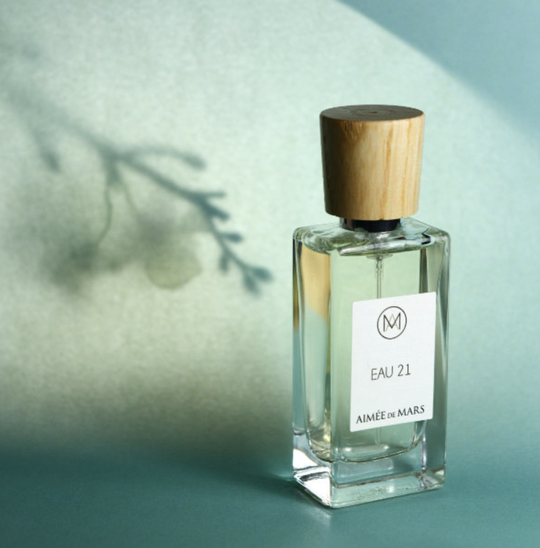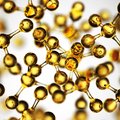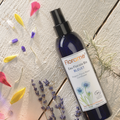When looking back to history of perfume, you’ll find that it has always been a part of human culture. Since ancient times, flowers and aromatic plants have been used to create fragrances. During the Renaissance, perfume became a symbol of social distinction and a way to assert one’s status. Today, perfume is enjoyed by everyone, associated with both pleasure and wellness.
Sticking with tradition, it is no surprise that the odors derived from plants and flowers are the base for organic and natural cosmetics.
In this article, we’ll explain the difference between organic and natural perfumes/eau de parfums and conventional perfumes.
We’ll also propose a non-exhaustive selection of organically certified perfumes and eau de parfums. If you’re still searching for the perfect Christmas gift, you might just find it here. 🎁
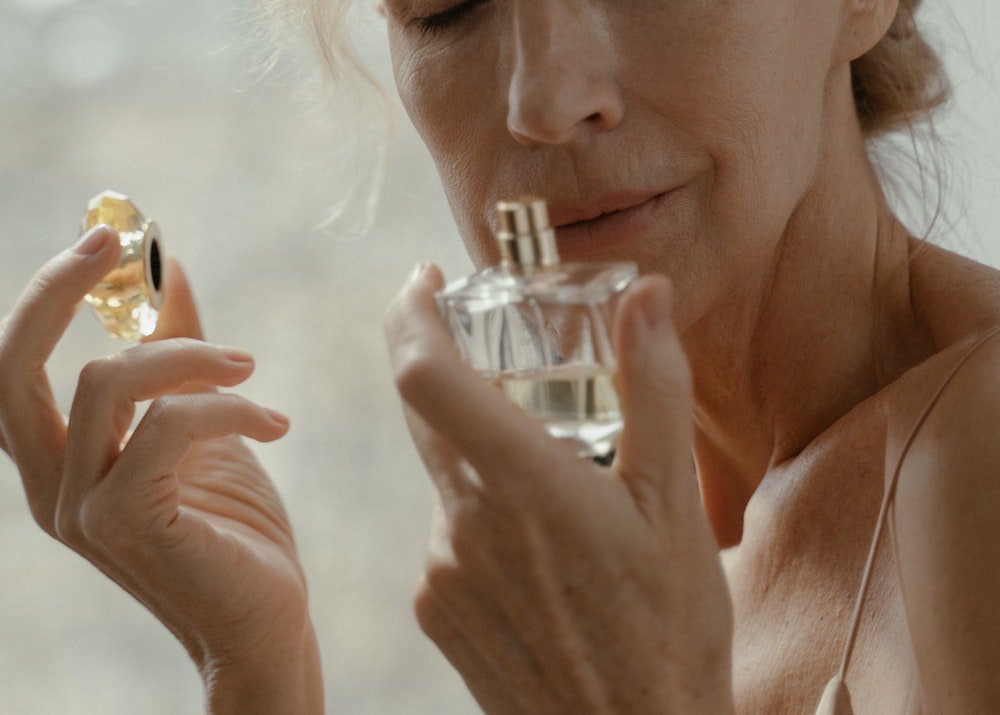
Note: This article focuses on organic perfume brands, but there are many other organic beauty brands that offer perfumes alongside their larger cosmetic catalogue. You can find them in our directory of certified cosmetics.
Making the switch to organic and natural perfumes and eau de parfums
Its a common misconception that organic and natural perfumes or eau de parfums are not as effective or powerful as conventional perfumes. However, it's clear that the organic and natural perfume industry has made significant progress, offering a diverse and varied selection that combines olfactory pleasure and naturalness.
If you're used to synthetic perfumes, your nose may need a little re-education. This will be all the more beneficial when you know what conventional perfumes actually contain!
The Difference Between Organic and Conventional Perfumes
Why switch perfumes if you've already found the perfect one among conventional fragrances? The composition, manufacturing process, and impact on your health are just a few reasons to explore organic and natural perfumes and eau de parfums.
Let’s take a look at the key differences:
Conventional Perfumes:
First of all, it’s important to note that it’s impossible to know exactly what’s in a conventional perfume because the formulas are kept secret. However, it is widely acknowledged within the industry that not all ingredients in traditional perfumes are natural.
A conventional perfume may contain natural ingredients, but also many synthetic ones, often derived from petrochemicals! As a result, conventional perfumers can produce scents that are either unknown or unrecognizable in nature, because they simply have never existed before.
With synthetic molecules, it's possible to create a wide variety of scents, including those that can't be extracted naturally. This is particularly the case with so-called "muted" flowers like lily of the valley, violet, and lilac. Although these flowers have incredible fragrances, it’s impossible to naturally extract them to make perfume! If a perfumer wants to include one of these scents, they must reconstruct it using multiple molecules.
Beyond the olfactory aspect of conventional perfumes, some harmful ingredients are used to stabilize the formula or as antioxidants: Chemical UV filters, and other ingredients like BHT (Butylated Hydroxytoluene) and BHA (Butylated Hydroxyanisole), should be avoided! These are suspected endocrine disruptors.

“Les parfums conventionnels contiennent principalement de l’alcool, mais dénaturé au phtalate, de l’eau, déminéralisée, et une composition parfumante qui peut contenir des filtres UV, des colorants et autres matières synthétiques” - Acorelle.fr
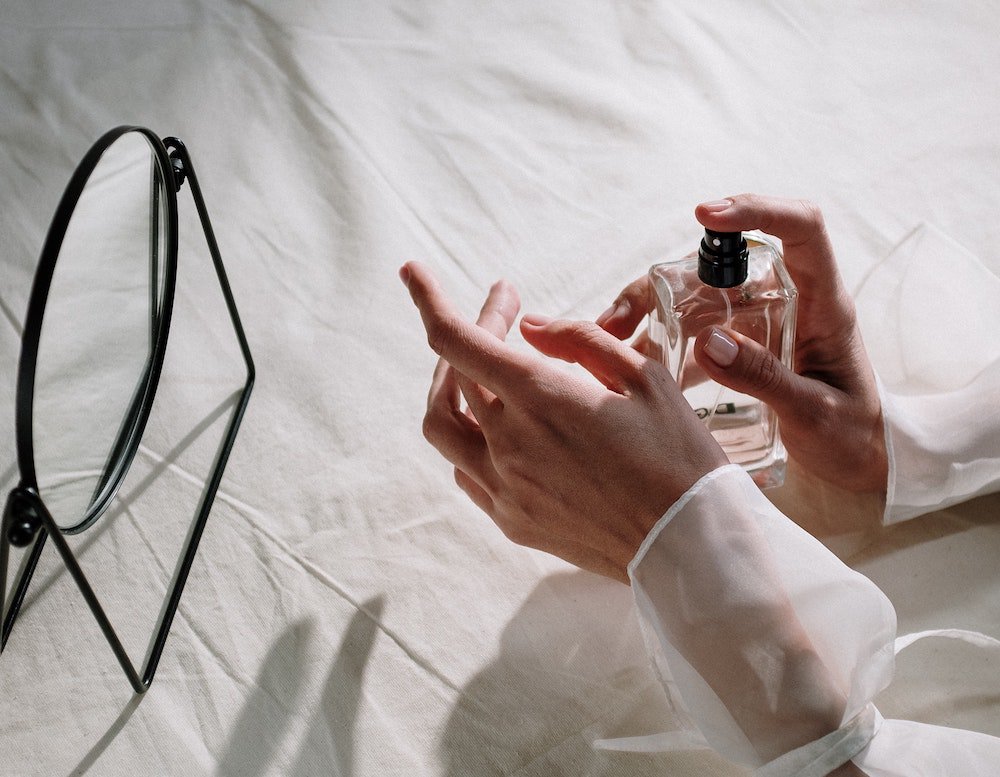
Natural and Organic Perfumes:
Ingredients in Natural and Organic Perfume
A natural and organic perfume derives its scents from real natural ingredients such as fruits, flowers, resins, wood, spices, roots, herbs, leaves, and plant extracts. This is why, when a product is labelled as natural and organic, it is ideal because the ingredients are free from GMOs and other components that may be harsh on your skin!
Moreover, Cosmébio-labelled perfumes and eau de parfums generally contain essential oils rich in beneficial properties. For instance, the brand Aimée de Mars uses rose and vanilla, while the brand Aemium incorporates rose as well as white flowers, citrus, and spices.
In addition, COSMOS Organic-certified perfumes only contain organic alcohol, which is especially important when you consider that a perfume contains a significant amount of alcohol.
Developping an Organic Perfume
COSMOS certification regulates not only the composition of organic perfumes and eau de parfums but also their manufacturing processes. The methods allowed by the standard aim to minimize environmental impact and be as green as possible.
How to Choose Your Natural and Organic Perfume
Are you drawn to floral fragrances? Woody? Fresh? Or are you unsure? Brands offer solutions to help you find the perfect scent that suits your fragrance style.
The best way to find the right perfume is to go through a testing phase. For example, the brand Aimée de Mars offers an online Aromatest to help you determine the fragrance that best matches your tastes.
If you'd like to try a fragrance before buying a full-fize, some brands provide discovery boxes. These kits consist of several perfumes, allowing you to test and even switch scents depending on your mood.
- Acorelle : Set Découverte de 9 parfums
- Aemium : Coffret découverte 7 parfums
- Nout : Coffret découverte 6 parfums
An Organic and Natural Perfume: The Ideal Christmas Gift!
Organic and natural brands: they have something for every taste and every personality! Today, you can find the perfect perfume in completely different formats from what you're used to, enough to surprise your friends and family this Christmas!
Organic Solid Perfumes: A Format Nomad
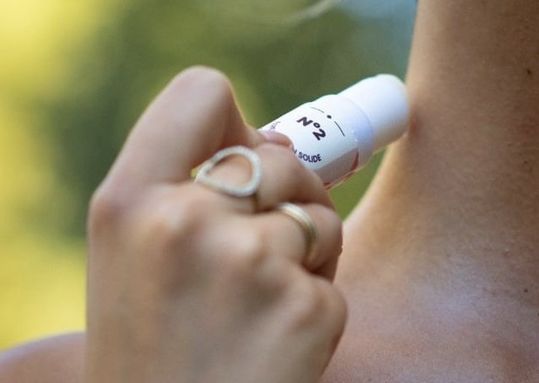
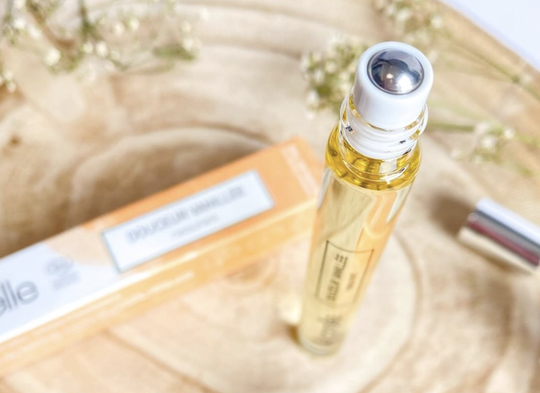
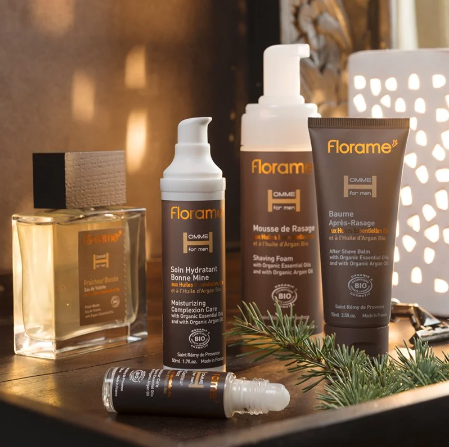
** The difference between perfume and eau de parfum lies in the concentration of extract/essence.


